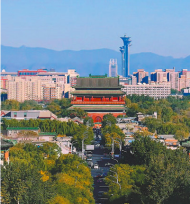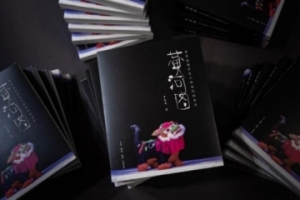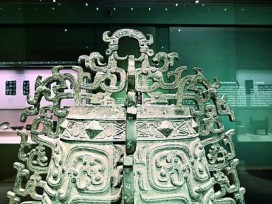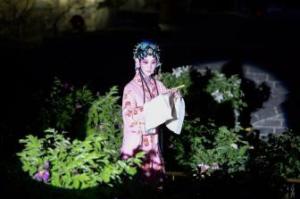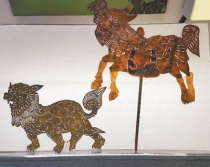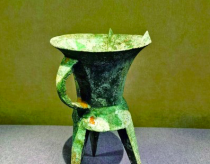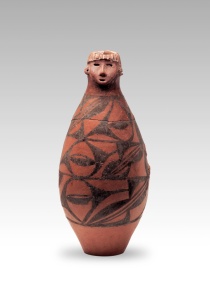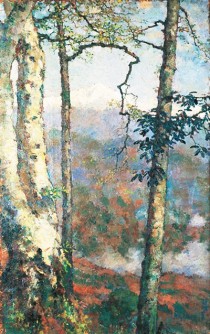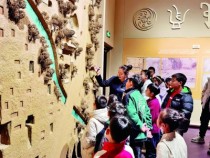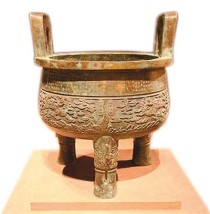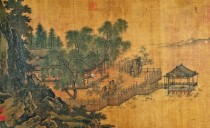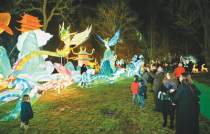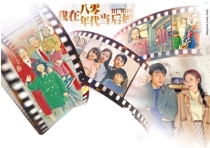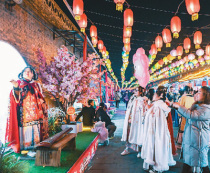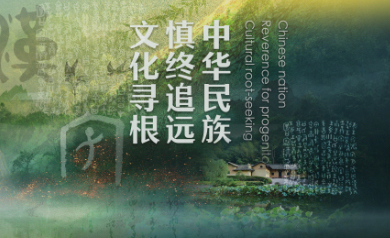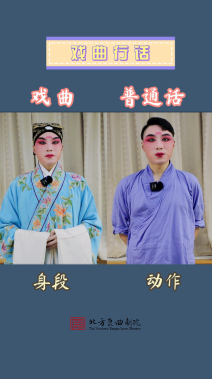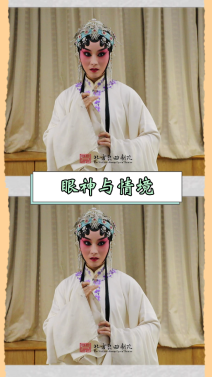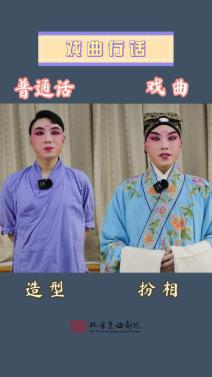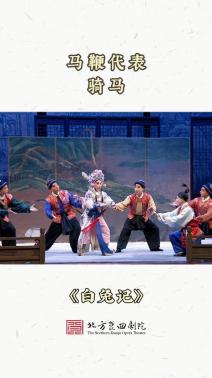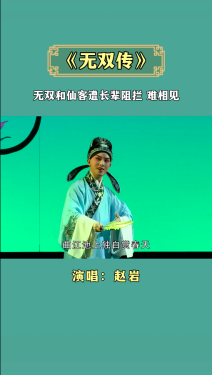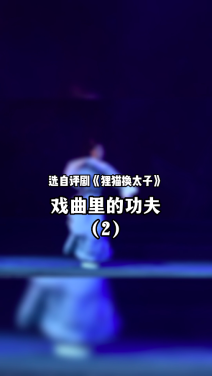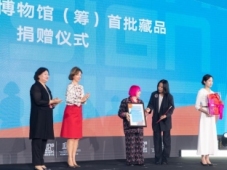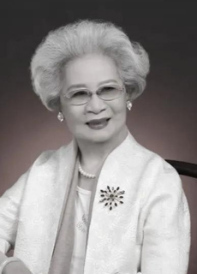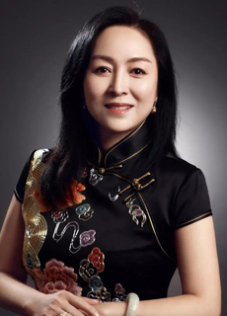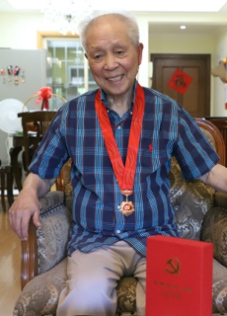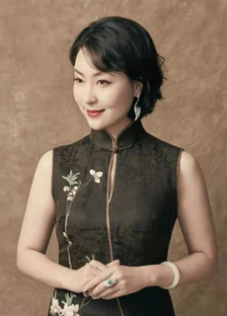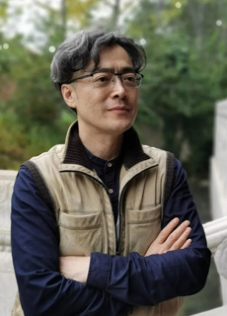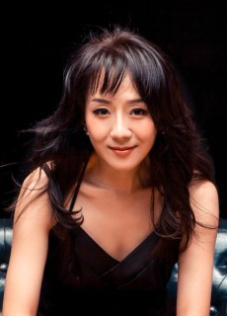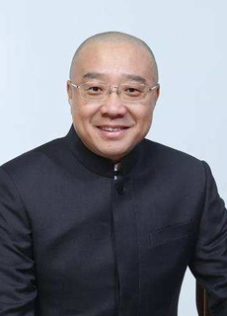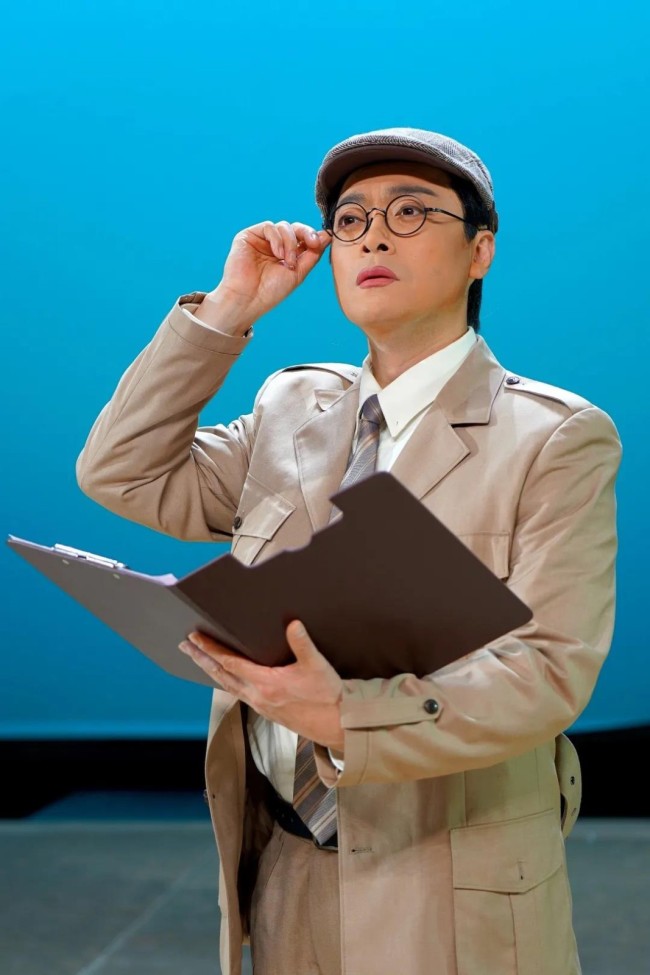
Yang Fan as Liang Sicheng
Title Interview with Yang Fan, a great martial artist in Kunqu Opera: Don't lament that there are too few bosom friends in Kunqu Opera. We should complete our work with quality and quantity guaranteed
On the Kunqu Opera stage, he is the great Wusheng in Running at Night, Single Sabre Club, Farewell to Jingniang from a Thousand Miles, and Huarong Road, which perfectly portrays the forthright and upright men of Yan and Zhao in the north; In his life, he is gentle and gentle. Yang Fan, the great Wusheng of the Northern Kunqu Opera Theater, has been associated with Kunqu Opera for more than 40 years. In the recently staged original large-scale Kunqu opera Lin Huiyin, he played Liang Sicheng, the first intellectual image Yang Fan encountered in his Kunqu opera stage career. How to play modern plays and modern people with classical Kunqu opera, and accurately find the common ground between the role and himself is the first problem he faces. "I must be infinitely close to the characters in stage performance, image and temperament."
Yang Fan has worked as a director, acted in a drama, and made a film. Finally, he stayed on the Kunqu Opera stage. From being ignorant to being involved in Kunqu Opera, he was inseparable from Kunqu Opera. Most of his experience and accumulation of Kunqu Opera art, more of his endless attachment to the Kunqu Opera stage, and more of his responsibility and responsibility for the inheritance and development of Kunqu Opera art. Speaking of his mentor Hou Shaokui, what Yang Fan remembers deeply is the teacher's careful and strict artistic guidance, as well as warm and selfless physical and mental care. "The inheritance of art by the artists of the previous generation and the teaching of the younger generation are pure and selfless."
Since he entered the Northern Kunqu Opera Theater in 1982, every bit of Yang Fan's study, life and work is inseparable from this art palace. He recalled with deep feelings the scenes when people gathered together to rehearse and talk about plays in the past, "it was a feeling of home". After several ups and downs of Kunqu art, Yang Fan said that he was not worried about the decline of Kunqu and no one was interested in it. "Not everyone will like the rhythm and appreciation angle of Kunqu. Don't lament that there are too few bosom friends. This is not something we need to lament. As Kunqu people, we should first complete our work with quality and quantity guaranteed. It is enough to explain to the audience who like Kunqu."
Liang Sicheng on the Kunqu Opera Stage
China.com: You played Liang Sicheng in Lin Huiyin. How do you understand this character? What preparations have you made to play this role well?
Yang Fan: This play is a modern play. It is about contemporary people. In terms of image, temperament and stage performance, the audience should be able to see the shadow of the characters. I read a lot of books, pictures, etc., and made some understanding of Mr. Liang Sicheng. In the 1920s and 1930s, they were young and knowledgeable. They were elite in those days. They had a good family life and received western education. In Lizhuang, they have difficulty in traveling, living in poverty, and suffering from physical pain. However, it does not matter how big the gap in life is for them. Their national integrity, strong belief and tenacious character deeply moved me.
It is mentioned in the text that his first weakness was when he asked the mayor of Beijing to preserve the city of Beijing at that time. He broke down and cried bitterly. His grief was heartfelt and he insisted on retaining the old Beijing buildings. I am very moved to see here. As an architecture expert, he has foresight, his protection and adherence to culture. His crying is not only for architecture, but also for national culture. I admire Mr. Liang Sicheng.
Chinanet: What are the difficulties you encountered in shaping this role?
Yang Fan: First of all, aging is the key to getting close to the stage. I am already over 50 years old and want to play a person about 20 years old. For me, the external shape should not only show Mr. Liang Sicheng's young state, but also not be too pretentious. At the stage when they designed the national emblem and monument, Mr. Liang Sicheng became more calm in terms of both knowledge and social attitude. With the speed of speaking, the voice of singing and the steps of walking, we can express a very mature man. At the same time, he is also a strong, firm and assertive intellectual, without the hesitation of his student days. When performing, I can't express his temperament and heroic words on the surface. Mr. Liang Sicheng's character is introverted and gentle, which is difficult to perform. I try to find some actions of the external body, find its specific posture to shape, but how to reflect when focusing on the inner part of the character? In particular, the drama stage is different from the film and television. The film can push the lens to the eye and express it through the eyes or language. However, the drama stage should not only have the stage performance form, but also have rhythm, and it should be naturally suitable for not over exaggerating performance. Liang Sicheng is the most difficult role I have met so far. In ordinary rehearsals, I keep speculating.
If you want to learn drama, you have to bear hardships
Chinanet: How did you become attached to Kunqu Opera? What are the things you remember deeply in your career?
Yang Fan: The Northern Kunqu Opera Theater was rebuilt in 1979. At that time, there was a shortage of talents. In 1982, 30 students were recruited. At that time, there were some favorable conditions for going to the theater school. There were 25 kg food stamps a month, 30 kg martial arts operas, a monthly subsidy of 12 yuan, and two sets of martial arts uniforms a year. In 1982, when I was 11 years old, I entered the student class of the Northern Kunqu Opera Theater. At that time, it was a group substitute class. We lived in the theater, eating and living with the actors. Seeing the teachers, brothers and sisters rehearse every day, they can learn at any time. During the drama practice, the teacher will say, "My child, will you show me around?" Therefore, we get not only the help of one teacher, but also many teachers will talk for us.
I was short at that time. I was recruited according to the old student. After half a year, the teacher said that I was too small and changed to short fight Wusheng. In the first half of the year, Hou Shaokui, my teacher, taught me to learn "Running at Night" six months later. At that time, Hou was in the prime of his life on the stage. He taught us during the day and performed at night. It's very difficult to teach children. They have to teach them again and again. Mr. Hou is very kind to people and never rushes when he tells a play. It's really hard to learn drama, but you have to stick to it. If you want to learn drama, you have to bear hardships. Our group of actors engaged in Kunqu opera know the cruelty behind the beauty of Kunqu opera. Only by experiencing this cruelty can we truly bring beauty to others.
As the old saying goes, "no skill, no play", many operas are the performance of skills, such as turning somersaults and shooting targets. If we want to show our special understanding of operas through stylized performance, we have to rely on our body to express it. Therefore, the body must be trained to be soft and agile to walk brightly, and flying feet to hit high. If someone else finishes in one minute, I may finish in 30 seconds, To dazzle the audience and win applause. This is not something that can be done by talking and talking, and we have to pay the price of bleeding. Why can't children become famous now, and they can make good achievements without hard practice? Can you come out of a good corner? Now there is a shortage of martial arts actors, and the number of martial arts actors in the national opera industry is declining. On the one hand, I love them, on the other hand, I don't have a solid foundation. Our old actors, Mr. Liu Guoqing and Mr. Cao Baoping, who are over 50 years old, performed with us on the stage, and pressed their hands to turn over seven or eight times to fall back. It was really amazing.
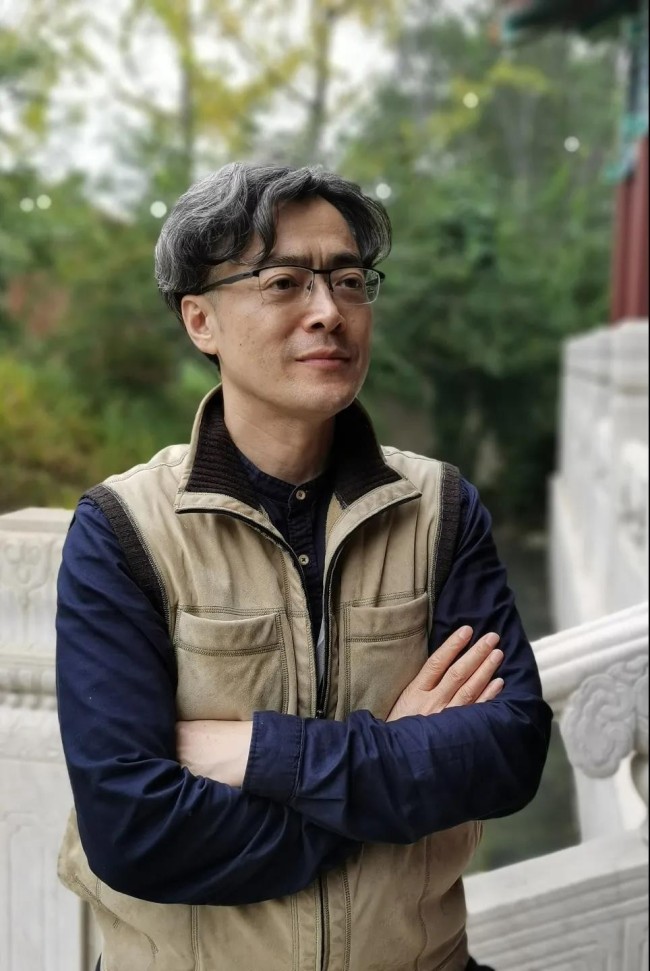
Characteristics of Hou School Wusheng
Chinanet: Could you tell us something about the characteristics of Kunqu's great Wusheng's performing arts?
Yang Fan: Wusheng is divided into short fight Wusheng, arrow suit Wusheng, long dependence Wusheng, and monkey play Wusheng. Many people ask why Wusheng is called Big Wusheng? This profession not only has requirements for civil and military drama, but also has very strict requirements for the quality of the actors themselves, both voice and performance. For example, the hammer is not abandoned in other plays. We usually follow the style and style, which requires stability, accuracy and ruthlessness. Hou Sect was first inherited from the Shang Sect of Beijing Opera. Mr. Yang Xiaolou was a martial brother of the same school. Wu Sheng was classified as Wu Sheng. Since they began, many Kunqu operas in the past were played by old people. The roles of martial arts operas were all played by old people with good voices. However, when performing martial arts operas, there was a lack of heroic and tough generals. For example, Guan Gong was the first to play two professions, one was old people, the other was Hualian, Slowly, the play started in the Hou Sect and was played by Wu Sheng. Wu Sheng is not as Wenwen Zou Zou as Lao Sheng. He has the feeling that the generals have passed five passes and killed six generals, but he is not like Hualian. Generally, Hualian is too arrogant. Because of his profession, he is not very good at performing the delicate psychological changes of the characters. Hou sent Wusheng to perform with more natural and smart, heroic and generous.
For many Wusheng actors, Hou Pai is not only the threshold they want to learn but always cannot reach, but now some troupes across the country also have a lot of qualified talents and good candidates. With the talent pool of young actors, Hou sent Wusheng should be able to pass on forever.
Drama is an actor based system
China.com: In addition to performing on the stage, you also serve as a director of operas, drama films, and dramas. You have been involved in directing the drama film Dream of the Red Chamber, the online short play Mensa's Wisdom, the drama Education Is Vitalizing the Nation, Kunqu Opera Guan Hanqing, and The West Chamber. Please talk about your feelings as a director. What do you value when directing a drama?
Yang Fan: It's not easy to be a director. As a director, the first position is different. The director is the deconstructor and interpreter of the script, as well as the leader of the production team. It requires great efforts not only in spirit but also in physical strength. It's lucky and hard to be a director. In some ways, I may prefer to show myself on the stage and pay silently behind the scenes. As a director, I have come into contact with many dramas, films and TV plays. My experience is that as a director, cultural accomplishment is the first. Opera directors should be special and know more about gongs, drums, music, singing, etc. How to design actors' actions on the stage is more challenging in some ways.
When watching a play or movie, the audience will first ask who the director is? What is the script? But when we look at operas, we first focus on who will act, the second is the script, and the third is the director. There was no director in drama at the earliest. It was an actor based system. Everything on the stage was around the actors. Only the actors were the ultimate executors who attracted the audience's attention.
The result that anyone can direct opera is that opera can either become a musical drama, or it can be a fantastic dance show and light display. Even the music has a theme. What about the actors? In fact, music and so on are all performed by auxiliary actors. The audience is looking at the opera actors' singing, reading, acting and martial arts, and how they reflect their characters. We look at many versions of Du Liniang, not to see who is directing, but to see who is acting, how Du Liniang and Liu Mengmei are performing, how "Mountain Peach Blossom" is singing, and what is beautiful is next.
The charm of tradition is eternal
China.com?
Yang Fan: The three plays of Running in the Night, Sing Dao Hui and Seeing off Jing Niang are the most typical classical excerpts of Hou School. After 20 years of acting, I realized the charm brought by the traditional excerpts to me. Each performance can feel the cooperation between my own breath and the band, and the integration of all actors on the stage. It is very enjoyable and worth remembering. Many new dramas have been arranged in Kunqu Opera over the years, but how many are left? These traditional excerpts have been performed for hundreds of years, for example, the Single Sword Festival has been performed for 500 years. I have been singing these three plays since I was in primary school. The audience can see the history and the culture that the opera really inherits in the classic plays. The earliest Kunqu Opera was the Northern and Southern Opera. Wei Liang, assisted by Kunshan Tune, turned it into Kunqu Opera. At that time, it was also a Qing Opera, which broke the festival while singing. It had not yet taken stage action. The Huansha Story was really acting. The charm of tradition is eternal. It never goes out of style. The stylization of traditional plays has reached a point that future generations cannot surpass. Our steps, eyes, fingering, and movements have really formed a high standard and norm. You can't touch it, because you can't touch it better than it. These are just like textbooks.
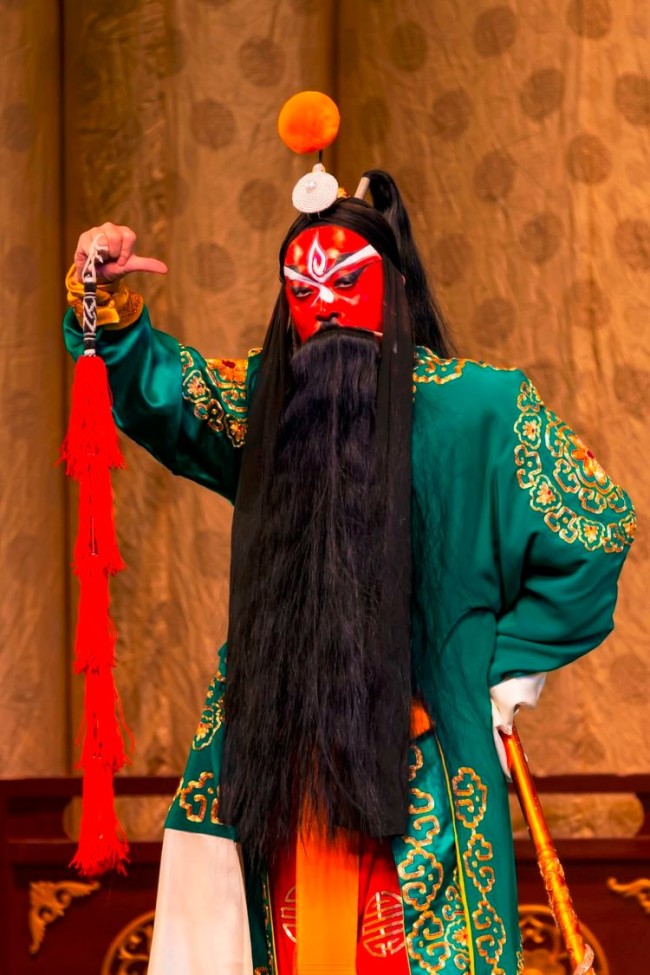
Yang Fan as Zhao Kuangyin in Farewell to Jing Niang
Zhonghuanet: Running at Night is your first play. What did you remember deeply when learning?
Yang Fan: I was the worst one when learning "Running in the Night". I was short and soft, but not hard enough. During the rehearsal, the senior brother was in good health. Mr. Hou said, "This child is weak." On the first day of rehearsal, Mr. Hou brought a small lunch box with soy sauce beef in it and said, "Eating meat is strong." In fact, in those days, teachers treated students more than just students, They also regarded him as their own child. They felt that the apprentice was also the future of the drama.
At that time, the rehearsal and teachers from other professions came to me to tell me a story. Now I think that how can a star actor tell a story to Wusheng? For the rehearsal of an ordinary student class, teachers all came to see and guide. I was very moved. The theater is like a home. This atmosphere also makes our young people feel the relationship between people, In particular, mutual support and selfless care between Kunqu Opera people. Now the theater sometimes has rehearsals. I hope everyone will come to see, for example, which young actor rehearsed today, not only in this profession, but also in other professions.
Chinanet: You have created a large number of impressive roles in traditional dramas, newly edited modern dramas, Kunqu contemporary dramas and modern dramas. Which role do you like?
Yang Fan: I am most impressed by the leaders in the new play "Seizing Luding Bridge". In 2000, the theater rehearsed the second version of Flying to Luding Bridge. This play was rehearsed in our theater in the early 1960s, and it will be performed on some occasions. I started acting in it at that time, playing the head of the cooking squad. At that time, the figure was relatively fat, and the company commander and head of the Red Army were envious. In 2016, I finally acted as the head of my dream. This play carries the spirit of Beikun for decades, from the 1960s to the present, older than me. It also makes me feel the inheritance of Kunqu Opera, see the inheritance of a theater, and understand the link between the older generation of artists and the younger generation. Because of the age difference, we may not have much contact with many teachers at ordinary times, but when rehearsing this play, many teachers were invited back. The teachers were very old, but when talking about things in their youth, they were full of spirit, which moved us very much. We admired the teachers for their solid work in Kunqu throughout their lives.
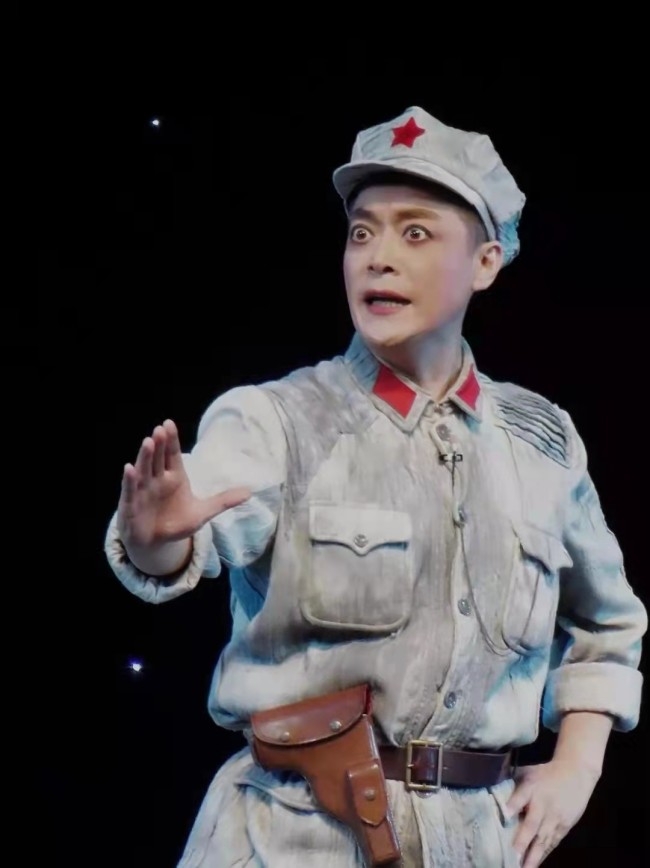
Yang Fan Plays the Role of Red Army Commander in "Seizing Luding Bridge"
Audience is the basis for Kunqu Opera's real survival
Chinanet: What do you think is the change of Kunqu Opera in today's era compared with that before?
Yang Fan: When I began to learn opera in the 1980s, there was no interest in Kunqu Opera. Secondly, Kunqu Opera became Beijing Opera. At that time, Beijing Opera was the quintessence of China. Other operas learned Beijing Opera, and gradually many operas became homogenous.
Nowadays, Kunqu Opera has become more and more a kind of drama that can match Beijing Opera in the eyes of contemporary audiences. Kunqu Opera is very popular on university campuses. Many people have learned about Kunqu Opera and appreciated its literariness and appreciation. Many young people walk into the theater and think it is fashionable to watch Kunqu Opera. Three years ago, we went to the Wuhan Opera Wharf to lead a team to perform. We specifically asked the theater staff about Kunqu Opera, Beijing Opera, Anhui Opera, Han Opera, and Cantonese Opera. The news was that more than 900 tickets had been bought for Beikun, and the whole audience was very young and advanced.
The audience is the biggest basis for Kunqu Opera to survive without leaving the museum. How to make Kunqu Opera have the power to really survive is the audience, the young audience. So I had great confidence that Kunqu Opera was not only recognized by the country after applying for the World Heritage, but also by the young audience. In the past two years, the Northern Kunqu Opera Theater has made some explorations. The training class for fans of "I don't know what spring looks like until I get to the garden" only recruited more than 30 people, but more than 300 people, all of them young people, signed up. For the theater, more than 300 people may become more than 500 or 1000 people, which is the basis for entering the theater. In August this year, we held a summer camp for Kunqu Opera. Many people went there. The audience began to recognize the theater and actors, and wanted to learn Kunqu Opera from the best teachers. Traditional and ancient operas are increasingly recognized by contemporary people.
Chinanet: How do you view the marketization of opera art?
Yang Fan: The marketization of opera has a long way to go. It cannot be launched into the market at once. After Kunqu Opera was listed as an intangible cultural heritage in 2001, it has improved, but its market penetration rate and support rate are not high enough. The state's support for this drama is still necessary. Kunqu Opera, as the ancestor of all operas, has such high artistic attainments that it can be used as a national literary and artistic card. Sometimes economic benefits cannot be considered too much. It is worthwhile for the state to spend any amount of money on cultural protection. Now, for some practical reasons, such as time constraints, some traditional plays have to be modified and deleted again and again. In a sense, it is a loss that will damage the whole play.
Drama needs to find more points that fit with young people
Chinanet: Now the pace of life is fast. What do you think can be done to make the slow paced traditional Kunqu Opera popular with more contemporary youth? Suggestions for young people to appreciate Kunqu Opera.
Yang Fan: We need guidance in everything we learn. Under the guidance of the teacher, we have to tell him what is good. There is no channel for us to understand opera. Although we have made a lot of efforts, we still need to continue to do it. There is a disconnect between opera and real life. I am not worried about the demise of opera. With the change of people's age, when they sink, they will listen to the words of opera and see what the words are? For example, the Qupai of the Kunqu Opera text is Song Ci, "originally colorful", which is very pleasant to hear.
Chinanet: In addition to acting and directing, you are also committed to the promotion of Kunqu Opera. What are your suggestions on the dissemination and popularization of Kunqu Opera in the contemporary era?
Yang Fan: Now it is popular to wear Chinese style clothes. Young people should be influenced by opera and stand in a proper manner. For example, Dan Jiao Er does not move his upper body when he walks. All of them have rules. The sense of body shape and ritual can temper people's temperament. The status of opera actors is different, and so is the status of drama types and actors. The combination of Kunqu Opera and contemporary opera needs to find more points of agreement with young people.
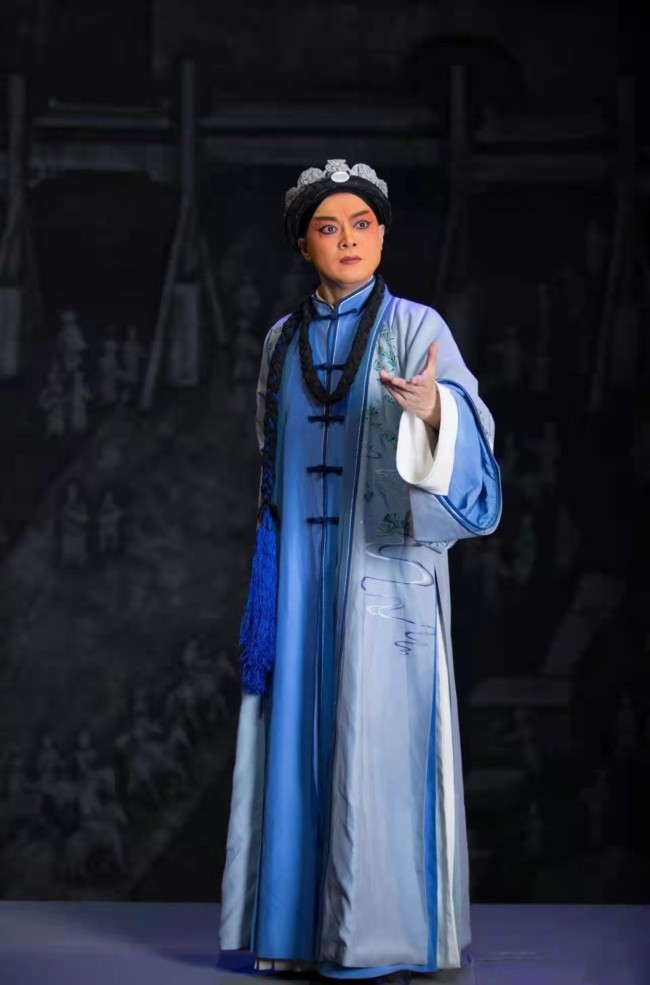
Yang Fan as Yin Jie in Rongbaozhai
The popularization and promotion of Kunqu Opera should be targeted. Children's understanding ability is weak in some aspects, especially in the first and second grades. More efforts should be given to the promotion of Kunqu Opera at the university level. The mind and body of college students are half social people. When they enter the society, they may leave Kunqu Opera and get busy living, but they will come back slowly. The rhythm of Kunqu Opera is destined to be appreciated by only some people. Don't lament that there are too few bosom friends. This is not something we need to lament. First of all, as our own staff, we need to ensure quality and quantity, and improve our own quality and the quality of the play.





